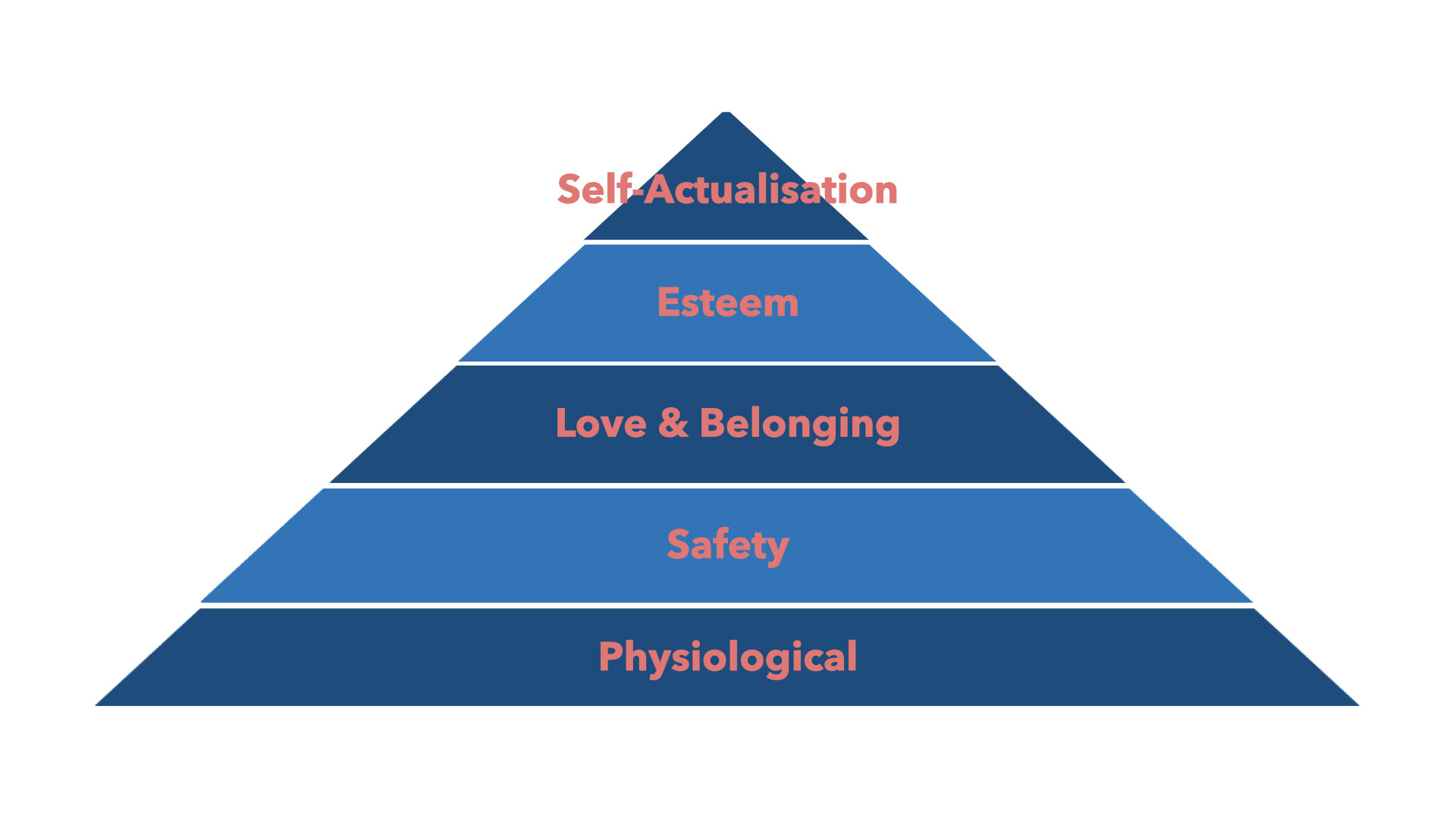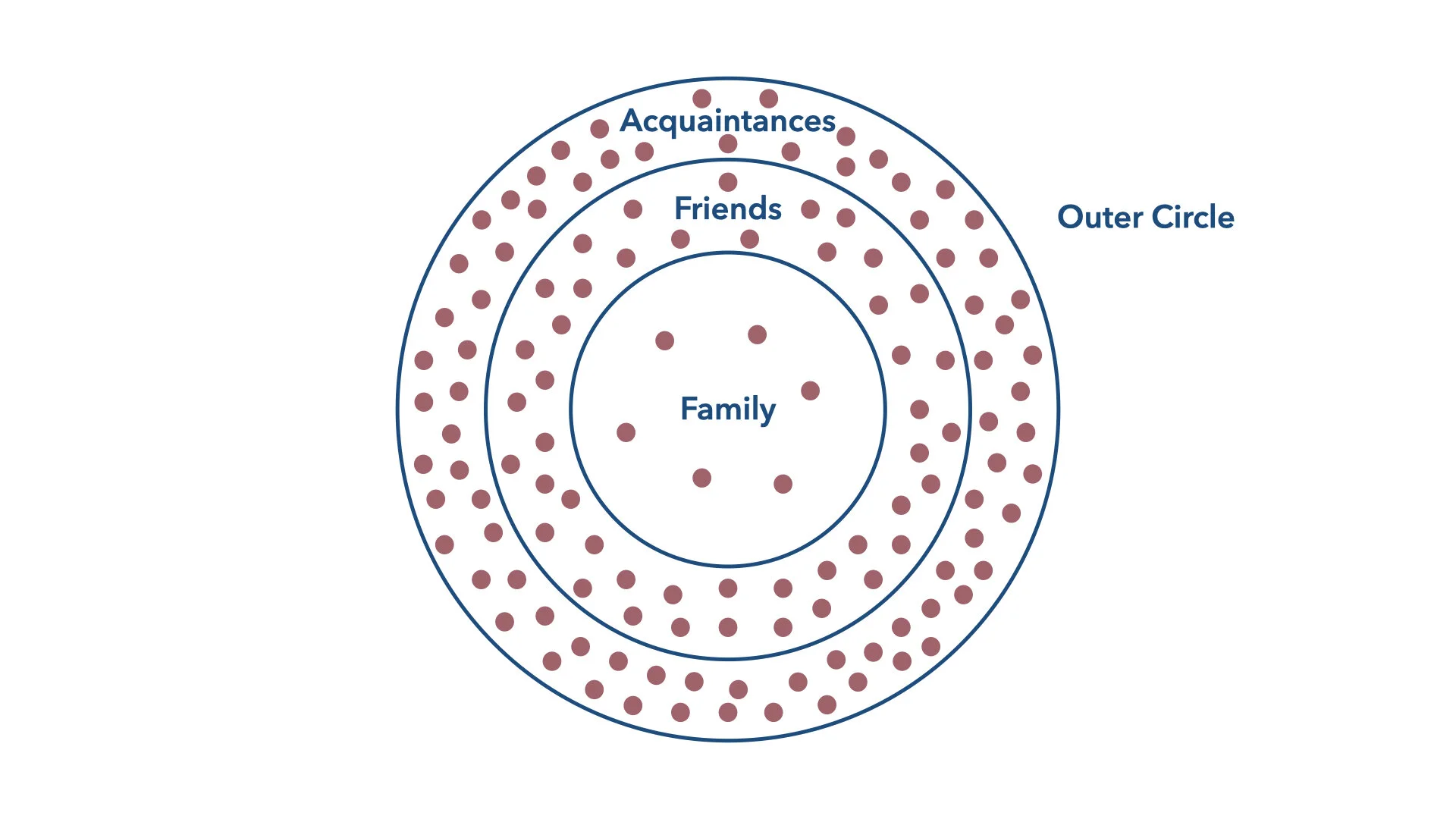Social Circles: the Importance of Weak Ties
Social Circles: the Importance of Weak Ties
Our social circles and who we interact with on a daily basis have a huge impact on our mental wellbeing. It is often assumed that those in our inner social circle play the most important role in our social needs, however, research shows that those in our outer social circles may be just as important.
Back in 1943, psychologist Abraham Maslow proposed that in order to the best version of ourselves, along with other needs, we needed to have a sense of love and belonging from the people around us. Most people will associate the words love and belonging with those we are closest to; our family, friends, partners etc; the people who have the most impact on our lives.
In his book ‘I am Human: 30 Mistakes to Success’, our CEO Martin talks about his 3 circle theory, which believe it or not, is made up of 3 social circles we tend to have in our lives. Our very inner circle is often our family, the next our friends, then acquaintances, and finally those on the very outer circle, the people we perhaps pass on our daily dog walk or see on the school run.
Most people would consider the family and friends circles as the most important, however, in 1973 Mark Granovetter, a sociology professor at Stanford University, published a paper suggesting otherwise. Granovetter proposed that those in our outer social circles, or, as he labelled them, ‘Weak Ties’ can actually be just as important. Whilst we get our feelings of closeness with those in our inner circles, Granovetter argued that in terms gaining new information and ideas, weak ties are more important than our strong ones.
After surveying around 300 employed individuals, Granovetter found that 84% of them secured their job through their weak-tie relationships rather than those who they were closer to. Granovetter explained this by pointing out that we tend to swim in the same pool of information with our inner circles and therefore, depend on those in our outer circles for information and opportunities. As well as benefitting us professionally, having a large circle of weak ties has been found to be good for our mental health. Gillian Sandstrom, a psychology lecturer from the University of Essex, carried out a study which found that the participants who had a larger network of weak ties, tended to be happier overall, and the days where they came across a higher number of weak ties, they experienced more happiness and a greater sense of belonging.
The Covid-19 lockdown has meant that many of us have been unable to see our close family and friends in person, and as a result have been keeping in touch via the telephone and video calling. This of course, has been tough for many people and many an article has been written about the effects not physically seeing our close ones is having on our mental health. However, very little attention has been paid to the impact that not interacting with our weak-ties is having on us.
Our weak-tie interactions happen when we’re out and about, which of course at the moment, we’re not (although as restrictions lift, we are out and about more than we were.) As we said earlier, we get a lot of new information from our weak-ties. As well as providing us with stimulation; in times of uncertainty, they also provide us with guidance on how to behave. Although right now cultivating weak-tie relationships is more difficult, it’s important to try and find ways to do so as they may provide us with new ways to cope with the various difficulties of life both during and after lockdown. Whether that’s emailing a work client, or stopping to chat to someone on the street, having a brief chat with someone in our outer circle can be really beneficial. For those who perhaps are furloughed or shielding, social media is a great substitute for weak-tie conversations. Simply scrolling through your feed provides us with new information on how others are coping, what they’re doing, and helping us figure out how to behave.
In Summary: feeling a sense of love and belonging is one of several needs we require to live a fulfilled life. This love and belonging comes from our inner social circles made up of friends and family, those who have the most impact on our lives. However, the interactions we have with those in our outer circles have been found to be just as important to contributing to our overall happiness and mental wellbeing, and as a result, should not be overlooked; particularly in times like these.
You can access more content like this with a T2 Hub licence.
Click here to find out more.


